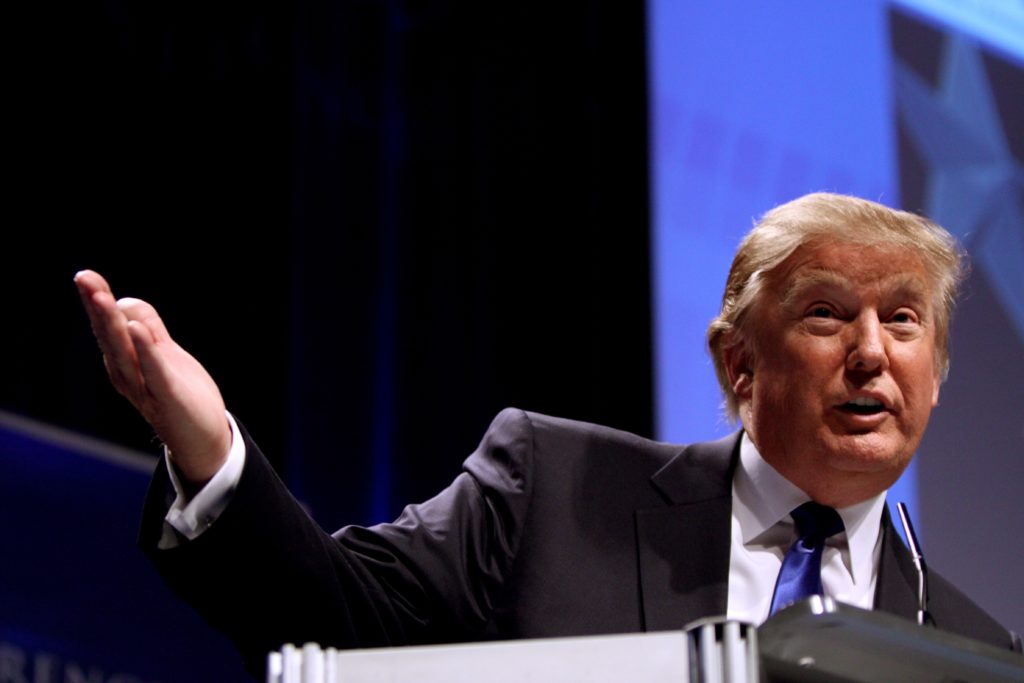The Peninsula
Trump Cancels Summit and Tells Kim “Call Me, Maybe”

By Troy Stangarone
For the second time in less than two weeks, North Korea suggested that it might not take part in the June 12 summit with U.S. President Donald Trump. To Kim Jong-un’s surprise, he won’t have the opportunity to withdraw from the summit. After recently standing up U.S. officials arranging the meeting in Singapore and calling Vice President Mike Pence a “political dummy,” President Trump decided to cancel the meeting. With President Trump’s decision to not attend the summit in Singapore, the prospect of denuclearizing North Korea has entered into a new era of uncertainty.
In his letter to Kim Jong-un, President Trump left the door open to meet in the future, and North Korea responded by leaving the door open as well. As the United States and North Korea try to find a way forward, there are largely three outcomes that could occur. As we’ve seen with President Trump’s own suggestion, the summit could still take place on June 12 or shortly thereafter.
If the two sides are unable to make the summit happen in the near term, the United States could continue its policy of “maximum pressure” and pursue a summit in the medium-term. It is very well possible that the June 12 date was too ambitious for the two sides to work through the issues that need to be resolved in advance of a summit.
However, there are downsides to a later summit date. By choosing to take on China over its trade practices before reaching an agreement with North Korea over its nuclear programs, the Trump administration has lost the leverage it had over China on North Korea. While North Korea’s exports to China have remained mere pocket change, its imports from China have slowly begun to increase in each of the last two months. There have already been signs the China might be loosening sanctions enforcement and Beijing may only need to moderate its enforcement of sanctions slightly to take some of the pressure off North Korea. If Beijing does so, the United States will begin to loose leverage in its talks with North Korea. Even if the United States strikes a deal with North Korea, ensuring enforcement will be more difficult if the U.S. has less influence with Beijing to tightly enforce sanctions while denuclearization is going forward.
A later summit date would also slow South Korea’s efforts to implement the Panmunjom Declaration. If the United States and North Korea do not meet until the fall, it would likely push back the prospect of concluding a peace treaty to end the Korean War this year. It would also slow South Korean efforts to engage North Korea economically as the United States would want to maintain economic pressure to keep North Korea at the denuclearization table.
The third potential outcome is the breakdown of the current process. That need not lead to military action, but would require the United States to find a way to ratchet up the pressure on North Korea. If the United States determines that Kim Jong-un is not serious about denuclearization this would be a sensible course. However, it is also complicated by U.S. trade actions against China.
However, if the United States and North Korea are able to find a way to put the process back on track, sustaining the process will be the key. With that in mind, there are a few steps each side should consider. North Korea and the United States have a tendency to make charged statements. Some restraint is necessary by both sides. When frustrations do gather, rather than publically express them, key officials should speak to smooth over any troubles. Lastly, North Korea will need to refrain from the games it has played in the past. Perhaps most importantly, they will need to come to a common definition of what they mean by denuclearization.
If Trump’s decision to call of the summit had a feel of “call me, maybe,” North Korea’s response had its own sense of “I mean, were good if you’re good.” Clearly, both sides still retain an interest in talking, even if both are being coy in their statements. In the end, the date of the summit matters less than the objective of reaching an agreement to denuclearize North Korea. If the two sides can find a way to achieve that, regardless of the date, the summit will be a success.
Troy Stangarone is the Senior Director for Congressional Affairs and Trade at the Korea Economic Institute of America. The views expressed here are the author’s alone.
Photo from Gage Skidmore’s photostream on flickr Creative Commons.
